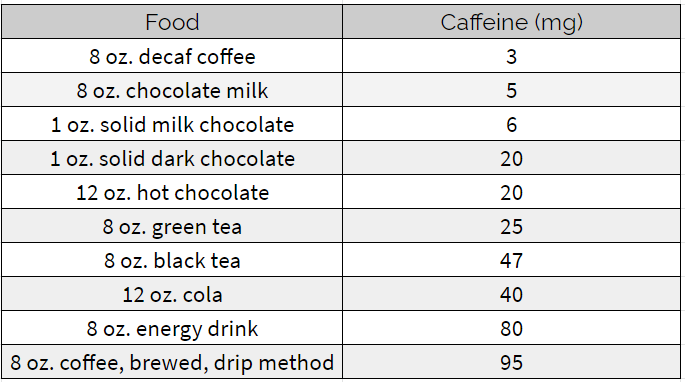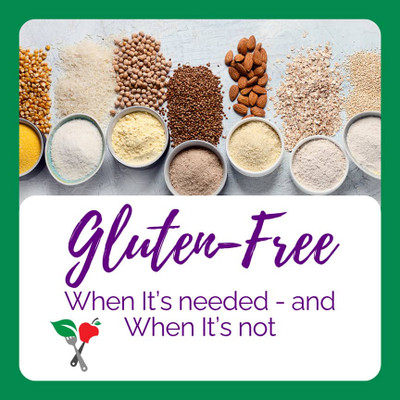Is Chocolate Good for You? Myths vs Facts
Chocolate is loved by many and for good reason: chocolate is delicious! But could it be possible that chocolate is good for you too? The fact is, chocolate has many benefits to our health as long as it is enjoyed in moderation and is paired with an overall healthy diet. But many people still believe that chocolate is an indulgence that’s bad for their health. So here are 6 of the most common chocolate myths…busted!
Myth #1: Chocolate has no nutritional value.
Chocolate contains different minerals and antioxidants. It is rich in copper, iron, zinc, and magnesium. Cancer-fighting flavanols in chocolate are antioxidants that fight free radicals in the body. Flavanols may also help to lower blood pressure, improve blood flow to the heart and brain, and help reduce the stickiness of platelets which may help fight blood clots.
To get the benefits of flavanols, it is recommended to aim for about 200 mg per day. This can be reached with 2 tablespoons of cocoa powder, which is about 20 calories. To reach this amount with some other chocolate items the calories can really start to add up. For example, you would need to consume 2 oz. of dark chocolate which is 300 calories or an entire cup of chocolate syrup which is 800 calories. It is best to opt for a combination of chocolate and other flavanol-rich foods such as onions, berries, citrus fruits, and tea to reach the recommended 200 mg daily.
Myth #2: Chocolate is bad for cholesterol.
Yes, cocoa butter does contain saturated fat but one-third of this fat is stearic acid which has been shown to help lower LDL, or bad, cholesterol levels. Stearic acid is converted to oleic acid in the liver, which is a heart-healthy monounsaturated fat. And another one-third of chocolate’s total fat comes from oleic acid itself. Further, potent antioxidants called phenols are found in chocolate. These are the same antioxidants found in red wine. Cocoa phenols were found in studies to prevent LDL cholesterol from causing plaque buildup in the arteries. Of course the total calories, sugar, and fat should still be kept in check to receive these benefits but eating a moderate amount of chocolate does not negatively impact cholesterol levels.
Myth #3: Chocolate is too high in caffeine.
Chocolate actually contains very small amounts of caffeine. Look at how chocolate compares to other caffeine-containing items:

Myth #4: People with diabetes shouldn't eat chocolate.
People with diabetes should practice portion control with all things, especially with chocolate. However, chocolate does not need to be avoided. Moderation will help to control the additional calories and sugar from chocolate. Although blood sugar does rise from eating chocolate, enjoying a small portion of chocolate with a meal rather than consuming chocolate by itself will help to slow down the absorption and digestion of the carbohydrates in chocolate. Be cautious with so-called “diabetic chocolate” or sugar-free chocolate. Oftentimes these products contain the same amount of carbohydrates as regular chocolate and contain sugar alcohols, which if consumed in large quantities can cause a laxative effect and other digestive issues.
Myth #5: Chocolate is addictive.
While some people may refer to themselves as a chocoholic, there remains no evidence that chocolate leads to a physical addiction. Oftentimes chocolate can be a comfort food and be the substance someone craves when feeling stressed or upset. Chocolate is thought to impact the function of brain neurotransmitters altering serotonin and dopamine levels, leading to a true physiological response boosting feel good vibes. Your chocolate cravings may be very real, but no…you are not addicted.
Myth #6: Carob cars healthier than chocolate bars.
A carob bar actually contains the same amount of calories and fat as a similar-size chocolate bar. Carob is a common substitute for chocolate. It comes from the seeds of the carob tree, which are different from cocoa beans. Carob, however, is caffeine-free and contains 3 times the amount of calcium as cocoa powder. If using carob powder, you would decrease the calories, fat, and cholesterol consumed but it is not as flavorful as chocolate often requiring the addition of other ingredients to enhance the flavor… which may also increase the calories, fat, and cholesterol.
There are also myths about chocolate causing acne, inflammation, headaches, and cavities. The evidence for each of these conditions are weak but for some people they may notice that chocolate may lead to symptoms. As for inflammation, some research has demonstrated that dark chocolate powders may help bifidobacteria, a health-promoting bacteria commonly found in yogurt, release anti-inflammatory compounds in the gut.
Now…just any chocolate won’t do! Choose quality over quantity! Look for a chocolate bar with minimal ingredients and additives, especially avoid any with hydrogenated oils. Darker chocolate contains higher levels of antioxidants and tends to be lower in sugar, the higher the percentage of cocoa the better. And processing can lead to lower levels of antioxidants and minerals, so look for chocolate that is least processed. Chocolate doesn’t have to be a forbidden food! When enjoyed in moderation, chocolate may lend some health benefits and make your life a little more delicious! Now, excuse me while I go and enjoy my Seattle Sutton’s Healthy Eating chocolate flax brownie….

Interested in eating healthy? Hungry for more?








 Weight Loss
Weight Loss Health & Wellness
Health & Wellness Diabetes
Diabetes Heart Health
Heart Health Motherhood & Family
Motherhood & Family Dietary Restriction
Dietary Restriction Other Health Conditions
Other Health Conditions About SSHE
About SSHE


